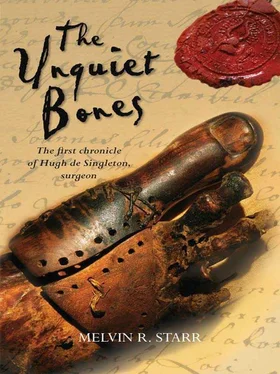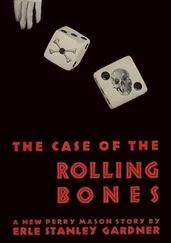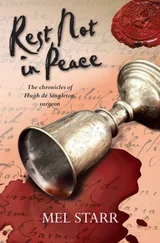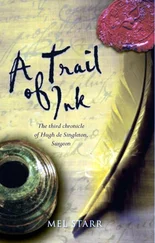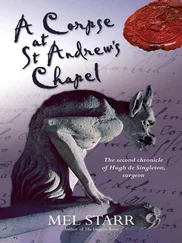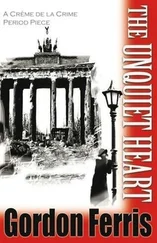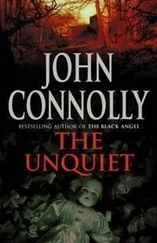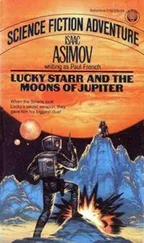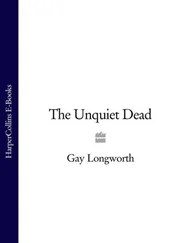Mel Starr - The Unquiet Bones
Здесь есть возможность читать онлайн «Mel Starr - The Unquiet Bones» весь текст электронной книги совершенно бесплатно (целиком полную версию без сокращений). В некоторых случаях можно слушать аудио, скачать через торрент в формате fb2 и присутствует краткое содержание. Год выпуска: 2008, Издательство: Kregel Publications, Жанр: Исторический детектив, на английском языке. Описание произведения, (предисловие) а так же отзывы посетителей доступны на портале библиотеки ЛибКат.
- Название:The Unquiet Bones
- Автор:
- Издательство:Kregel Publications
- Жанр:
- Год:2008
- ISBN:нет данных
- Рейтинг книги:4 / 5. Голосов: 1
-
Избранное:Добавить в избранное
- Отзывы:
-
Ваша оценка:
- 80
- 1
- 2
- 3
- 4
- 5
The Unquiet Bones: краткое содержание, описание и аннотация
Предлагаем к чтению аннотацию, описание, краткое содержание или предисловие (зависит от того, что написал сам автор книги «The Unquiet Bones»). Если вы не нашли необходимую информацию о книге — напишите в комментариях, мы постараемся отыскать её.
The Unquiet Bones — читать онлайн бесплатно полную книгу (весь текст) целиком
Ниже представлен текст книги, разбитый по страницам. Система сохранения места последней прочитанной страницы, позволяет с удобством читать онлайн бесплатно книгу «The Unquiet Bones», без необходимости каждый раз заново искать на чём Вы остановились. Поставьте закладку, и сможете в любой момент перейти на страницу, на которой закончили чтение.
Интервал:
Закладка:
“Send your daughter tomorrow, after the morning Angelus bell. I will have another draught prepared for the day.”
I walked back up the track to the castle, then along Mill Road to the brook. On its banks I found two round, flat stones of likely size, grasped them with wet, frozen fingers, and returned with them to the hut. I placed them on the packed earth floor, one on either side of the bedposts, and instructed Alice to slide them in place as I lifted the bed. I reminded the girl to come to Galen House in the morning for another draught, then made my way home through the gloom of a winter evening. A cart with two bodies, attended by half a dozen cold, impatient men, awaited me.
My table would have to serve again. The toft behind Galen House was enclosed, so I ordered the bodies moved there. The table was long enough to serve the squire, but Sir Robert overhung it head and foot. He would not care.
Chapter 9
There were advantages to residing across from the churchyard. Being awakened before dawn by the Angelus bell was not one of them. I reasoned that I could learn nothing from the corpses until daylight, anyway, so kept to my bed for two more hours. Had I known who lingered at my door I would not have been so sluggardly.
I stumbled down the stairs and lit a cresset to improve the dim glow from my east window. Before I could slice a loaf of barley bread for my breakfast, I heard a soft knock at my door. I opened it and found Alice, bundled against the cold, shivering there. I bade her come in, and asked how long she had waited there.
“Since the Angelus bell, sir,” she replied.
“Is your father taken worse?”
“Nay, not worse. But the draught you gave him last night no longer serves. He needs another. You told me to come.”
I set about preparing the crushed seeds and root of hemp, added some crushed lettuce for good measure, then mixed the stuff in a pint of ale.
The girl watched me work in silence for a time, then spoke: “He’ll not live, will he?” she said softly. It was more a statement than a question.
Not for the last time in my profession, I met an issue for which I had no good answer. Should I destroy all hope, and speak frankly? Should I attempt to preserve hope, especially in a child, when I knew that hope was all that remained? Henry atte Bridge had too many obstacles to overcome: the broken hip, his age, the cold of winter, and the noxious air of his hut among the worst of these. He would not live.
I paused before I answered the girl, sorting these thoughts in my mind. My hesitation was response enough.
“I thought not,” she said quietly. I turned to her, the laced ale before me. The girl stood, trembling yet from the cold, with a tear reflecting the lamp as it coursed down her cheek. “What will become of me?”
“You have family. Your brothers live at the Weald, do they not? Surely one will make a place for you?”
“No,” she whispered, “they’ll not want another mouth to feed. Not mine, ’specially.”
I needed ask only a few questions. The girl gave me the story of her life with little prompting. Henry atte Bridge’s first wife died twenty years before. His sons were angry when, six years later, he married a widow of the town, Alice’s mother. They feared another son who might share Henry’s meager possessions at his death. A daughter born of the union should have allayed their fears, but too much anger had passed between the families. The death of Alice’s mother eliminated the possibility of more contenders for inheritance. This also should have softened the sons, but did not. Then plague struck again. There was fallow land available across the shire for payment of a small fine and rent. Henry atte Bridge’s smallholding might be doubled or tripled by enterprising tenants. But the alienation continued.
I sent the girl back to her father with the draft and what remained of my barley loaf. I had another loaf, of mixed oats and barley, and a finer one of barley and wheat. I feared there might be little to eat in her hut and I had plenty. I must confess that, as I watched her go, I reflected that this child might grow to become a beautiful young woman. Her features were fine, her carriage seemly, and her eyes and hair glistened.
I could put off my repulsive duty no longer. I opened the rear door and approached the bodies. In the light of day I discovered the cause of death quickly. I had not seen this from above the grave, because of the bent position the corpses took in the ground, and in the night, as they were deposited on my table, it was too dark. But now in the day I could see clearly.
There were slashes in both kirtles where blades had wounded the two. These injuries, I thought, did not bring instant death, but the wounds were near enough the heart that whosoever received such a stroke would not live long.
I studied both bodies, but could find no purse, nor were any rings on the fingers or chains about the necks. There had been theft when this murder was done, but I doubted that was the only motive.
Hubert Shillside convened the coroner’s jury next day, and I told them what I had learned. This was murder for murder’s sake. The slayers were unwilling to bury gold and silver, but did not, in my opinion, kill for it. The jury met in the church nave, as it had done when I presented evidence of the bones of Margaret Smith, then retired briefly to the porch, and returned with a verdict that murder had been committed.
The coroner dismissed the jurymen and Lord Gilbert dismissed the coroner. He did not, however, dismiss me.
“I know,” he began as we walked in the churchyard, “that the unraveling of what has happened to Sir Robert should be the duty of a bailiff.”
“And revealing the killer of Margaret Smith,” I reminded him.
“Indeed.” He fell silent for a moment as we walked the path sunk among the graves. How high, I wondered, will the earth over these graves rise? Will my body some day help add another layer to the embanked earth lining this path? Lord Gilbert spoke again, distracting me from my morbid thoughts.
“I must appoint a bailiff before I depart for Goodrich. Tell me…I ask for candor…do you think my reeve, John Holcutt, suitable?”
I did not, but wished to be tactful. It is not easy to criticize a man politely. Once again my hesitation was answer enough.
“I agree,” Lord Gilbert punctuated my silence. “John is an excellent husbandman, and manages accounts well enough. My tenants have chosen him three years now to serve. He would decline the position, but I walk softly with him, and permit him more consideration than I might another because of his abilities.”
“He seems a competent man,” I agreed, “in his management of the manor.”
“Indeed. But to place upon him the burden of bailiff? That, I fear, may extend his duties beyond his talents. And I think a bailiff should be one of higher rank, not drawn from tenants or villeins. The younger son of a knight, or from the gentry, perhaps, would serve.”
Lord Gilbert had gone to pulling his chin as he spoke. I made no reply, for I feared the direction his words were taking.
“To be brief, Hugh, I would have you serve here as my bailiff.” To my raised hand and unvoiced but imminent objection he continued, “No…no…hear me out. You are performing some of the duties of a bailiff already, seeking miscreants in my lands. The townfolk admire you for your service to them. You can continue to perform that duty. John dislikes his position as reeve, which makes him a good man for that work. He will not begrudge me passing over him for bailiff. To the contrary, I think he will be relieved.”
“But I know little of managing a manor,” I protested.
“You grew up on one, where you observed your father. Did he administer well?”
Читать дальшеИнтервал:
Закладка:
Похожие книги на «The Unquiet Bones»
Представляем Вашему вниманию похожие книги на «The Unquiet Bones» списком для выбора. Мы отобрали схожую по названию и смыслу литературу в надежде предоставить читателям больше вариантов отыскать новые, интересные, ещё непрочитанные произведения.
Обсуждение, отзывы о книге «The Unquiet Bones» и просто собственные мнения читателей. Оставьте ваши комментарии, напишите, что Вы думаете о произведении, его смысле или главных героях. Укажите что конкретно понравилось, а что нет, и почему Вы так считаете.
